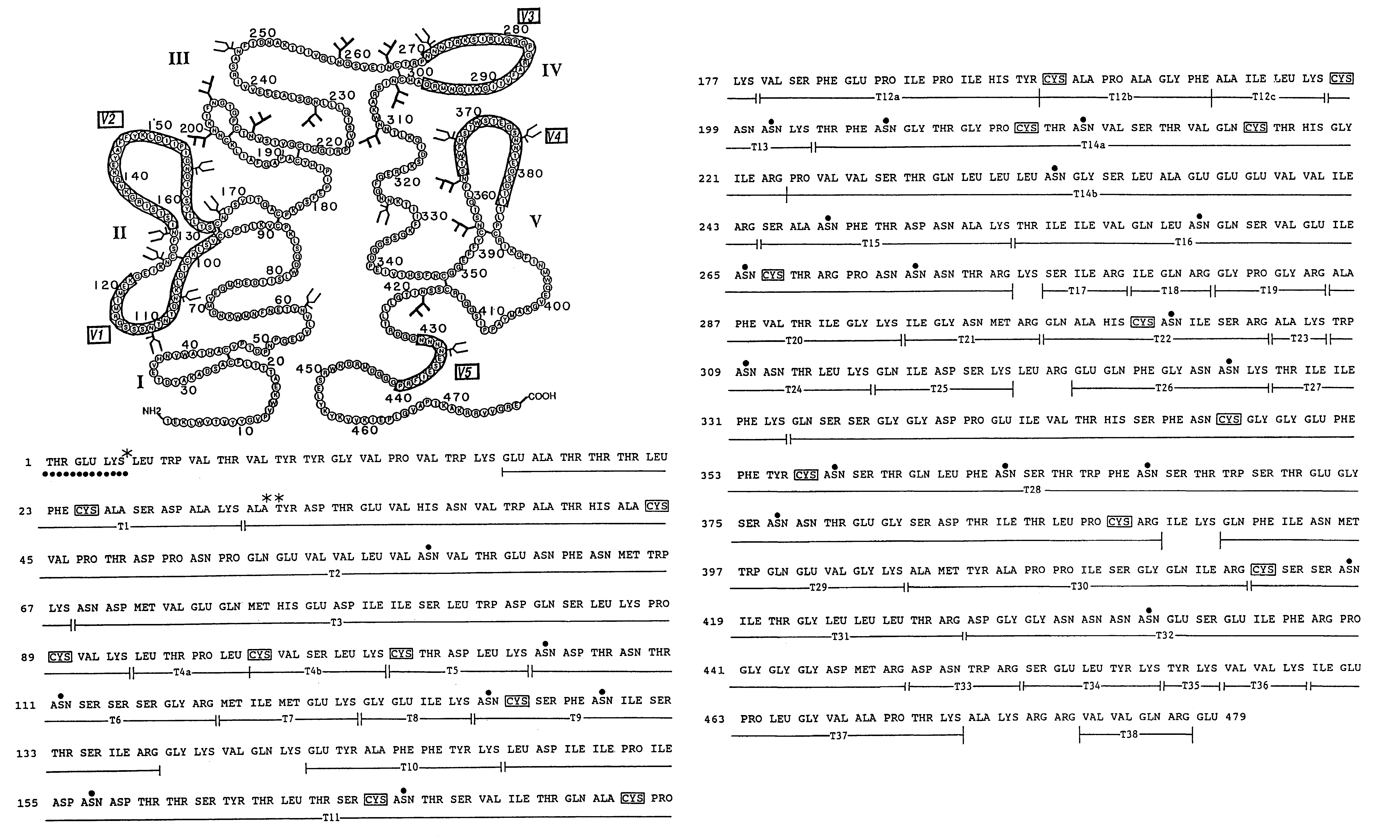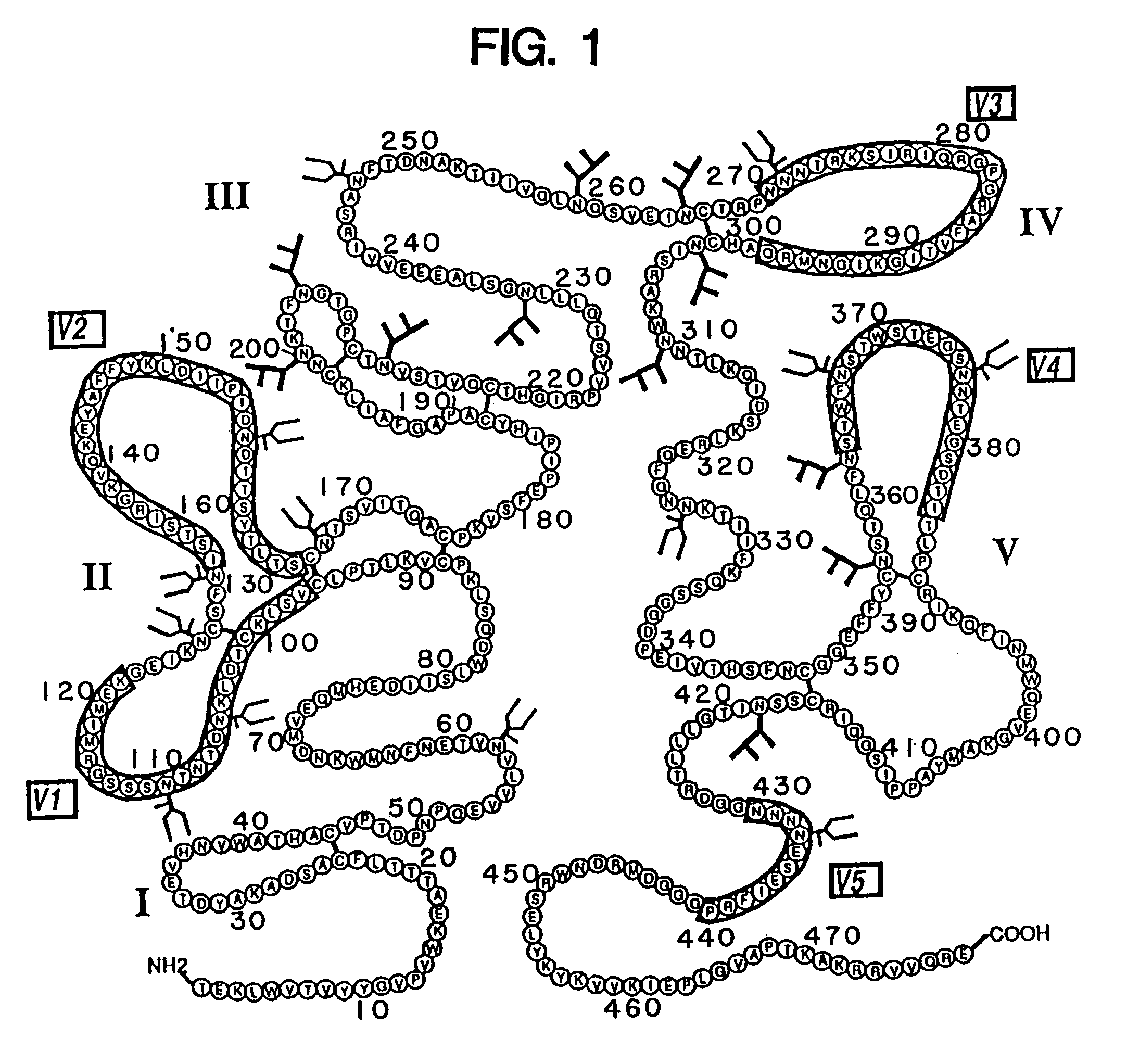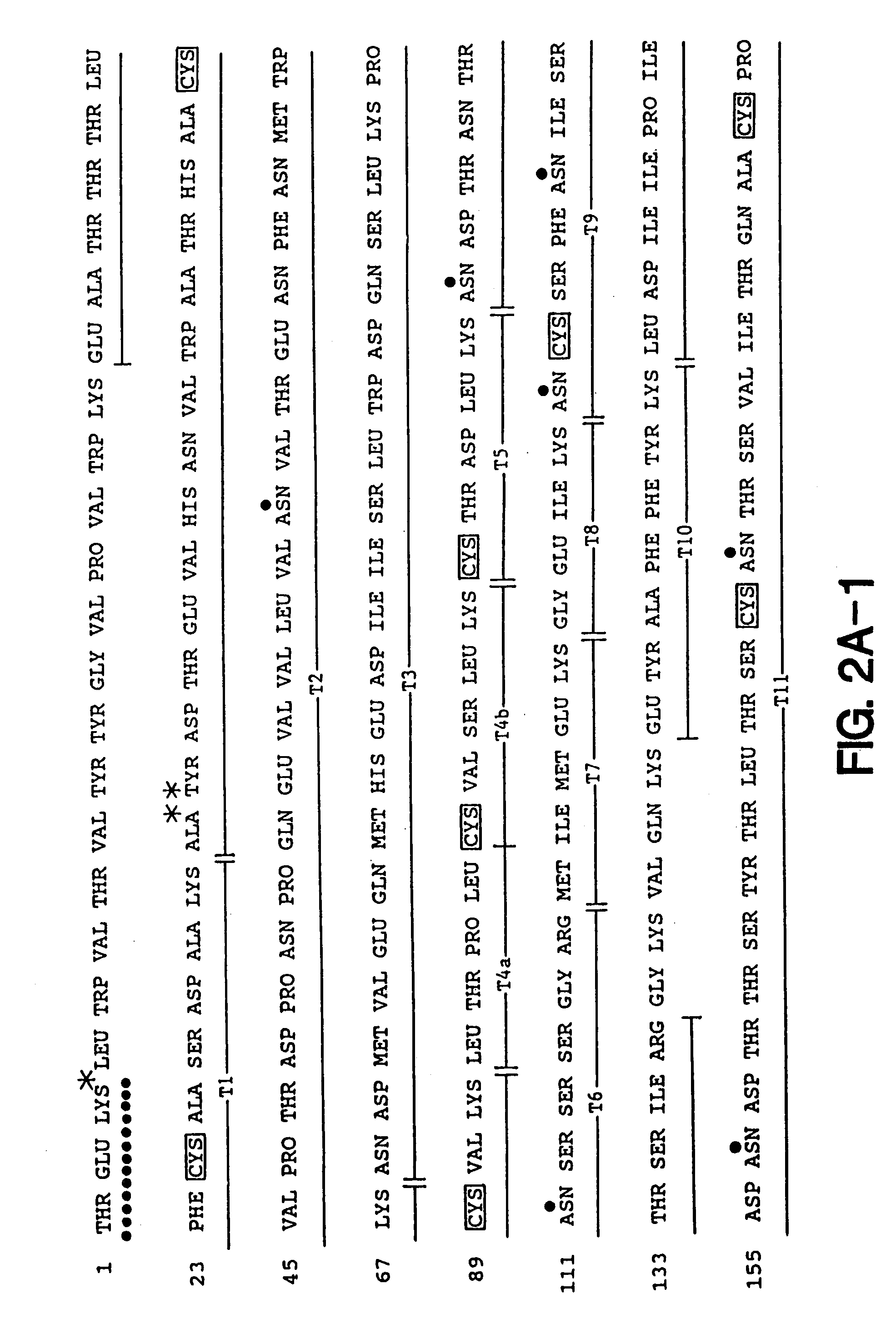HIV env antibodies
a technology of immunodeficiency virus and envelope, which is applied in the field of human immunodeficiency virus, or hiv, envelope polypeptide, can solve the problems of eventual depletion of cells necessary for a normal immune response, the failure of these models to solve the question, and the impairment of the function of helper t cells, etc., to reduce reverse transcriptase activity and inhibit syncitia formation
- Summary
- Abstract
- Description
- Claims
- Application Information
AI Technical Summary
Benefits of technology
Problems solved by technology
Method used
Image
Examples
example 1
Chimpanzee Vaccine Study
[0173]Previous literature reported that chimpanzees immunized with recombinant gp120 (rgp120) developed humoral and cellular immunity to virus-derived protein, but that vaccination with this preparation failed to provide protection from HIV-1 infection in vivo (e.g. Berman et al., Proc. Nat. Acad. Sci. USA 85: 5200–5204, 1988 and other references, infra. Surprisingly, our present study demonstrates a vaccine which did provide protection.
[0174]The proteins used in this study were purified preparations of recombinant protein expressed in mammalian cell culture and adsorbed onto aluminum gel.
[0175]The rgp120 protein (FIG. 3A) consists of the gp120 fragment of the HIV-1 envelope glycoprotein fused to a short N-terminal sequence of the herpes simplex virus glycoprotein D to facilitate expression. The sgp160 protein is a variant of gp160 wherein the transmembrane domain and cytoplasmic tail have been deleted to enable the protein to be secreted from mammalian cells...
example 2
Generation of Antibodies
1. Generation and Characterization of Monoclonal Antibodies
[0197]Soluble forms of recombinant gp120 and gp160 were expressed in Chinese Hamster Ovary (CHO) cells according to the methods described in Lasky et al., Science 223: 209 (1986), and were purified by affinity chromatography from growth conditioned cell culture medium of the D531 and D683.DC.9 cell lines described previously. The soluble form of recombinant gp160 (sgp160 or 683DC.7) contained two deletions. The first eliminated ten amino acids spanning the gp120 / 41 cleavage site and the second deleted the hydrophobic transmembrane and cytoplasmic tail.
[0198]For ELISA assays a gp41 fusion protein (LE41) consisting of an amino terminal fragment of the Trp E gene fused to 100 amino acids from the amino terminus of gp41 was expressed in E. coli and purified as previously described. Reduced and carboxymethylated rgp120 and sgp160 were prepared by dialysis of sgp160 and rgp120 into Tris / HCl buffer containin...
example 3
Preparation of Unclipped GP120 Through Recombinant Cell Culture
[0231]Recombinant cell culture procedures have been developed which yield unclipped HIV env polypeptides (in this example rgp120) which are substantially free of clipped gp120 fragments. Current approaches to cell culture optimization are found in Mather, Methods in Enzymology, vol. 185, chapter 43, pages 567–577 (1990), specifically incorporated by reference.
[0232]Chinese hamster ovary cells transfected with an HIV envelope gene expression plasmid (CHO DHFR+) (Lasky, L. A. et al., Science 2233: 209; 1986) were used for the production of the rgp120 used in this example. An initial stock spinner culture was initiated at approximately 3.11×105 cells / ml and grown in 1.5 liters of selective medium containing low glucose (3.2 g / l), 7.5% diafiltered fetal bovine serum, and 3.7 ml of 1.0 mM methotrexate. The culture was stored on magnetic stirrer in a 37° C. (30–41C) incubator at approximately 40–50 rpm. After four days, the cu...
PUM
| Property | Measurement | Unit |
|---|---|---|
| Fraction | aaaaa | aaaaa |
| Water insolubility | aaaaa | aaaaa |
Abstract
Description
Claims
Application Information
 Login to View More
Login to View More - R&D
- Intellectual Property
- Life Sciences
- Materials
- Tech Scout
- Unparalleled Data Quality
- Higher Quality Content
- 60% Fewer Hallucinations
Browse by: Latest US Patents, China's latest patents, Technical Efficacy Thesaurus, Application Domain, Technology Topic, Popular Technical Reports.
© 2025 PatSnap. All rights reserved.Legal|Privacy policy|Modern Slavery Act Transparency Statement|Sitemap|About US| Contact US: help@patsnap.com



